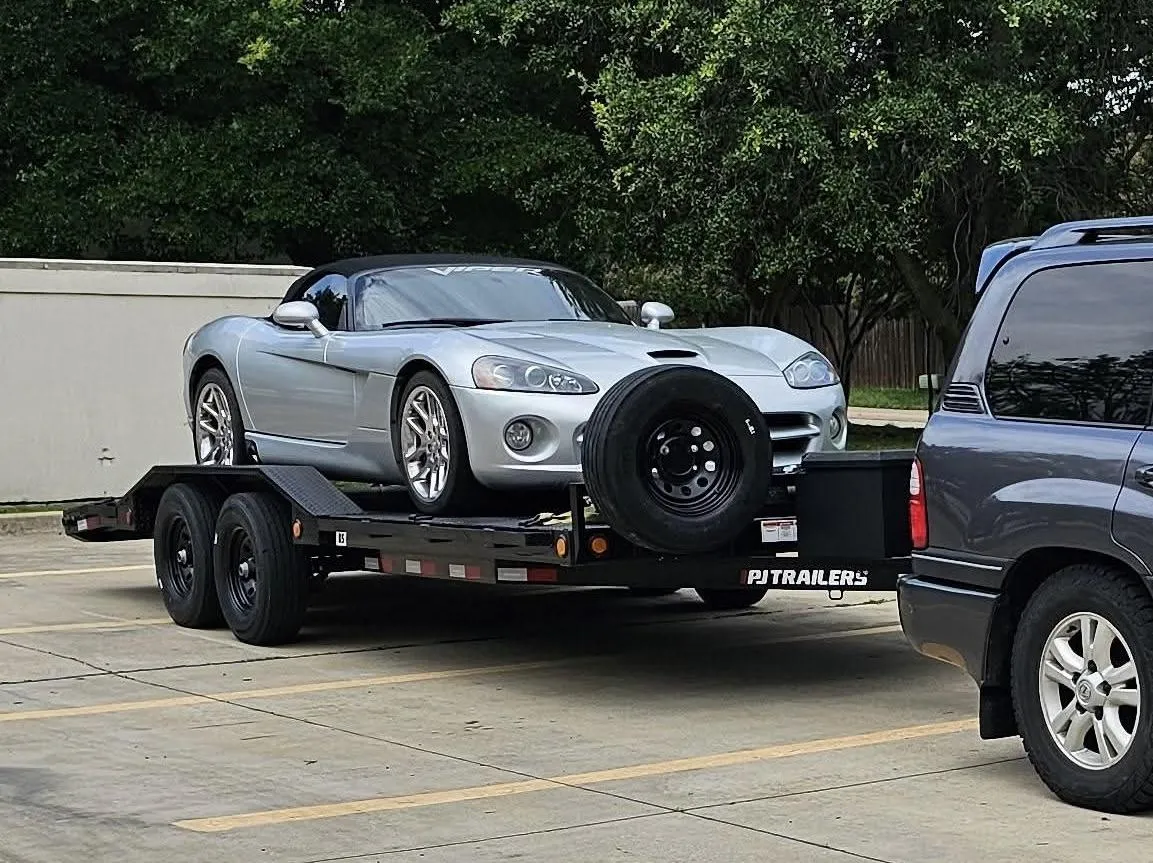
Car Hauler Trailer Rental Guide: What to Know Before You Tow
Car Hauler Trailer Rental Guide: What to Know Before You Tow
Renting a car hauler trailer might seem simple—until you realize just how many variables are involved. From choosing the right trailer to preparing your vehicle, loading safely, and staying compliant with road laws, there’s a lot to consider. This guide breaks it all down so you can rent with confidence, avoid common mistakes, and get your vehicle from point A to point B without a hitch (pun intended).
Understand What You’re Hauling
Before you even start browsing rental options, know exactly what kind of vehicle you’re transporting.
Is it running or non-operational?
Is it low clearance like a sports car or lifted like a truck?
What’s the total weight with fluids and cargo included?
A small sedan may fit on most standard haulers, but a long-bed truck or vintage muscle car may require a wider deck or extra ramp clearance. Getting these details wrong can mean delays, improper fit, or even safety risks.
Know Your Tow Vehicle’s Limits
Just because your truck has a hitch doesn’t mean it can tow any trailer.
Always check your vehicle’s tow rating in the owner’s manual.
Verify the hitch class (Class III, IV, or V) and ensure it matches the trailer weight.
Confirm that your tow vehicle has a working 7-pin connector for lights and brakes.
Most car hauler trailers have electric brakes for added safety—but if your vehicle doesn’t have a brake controller, you may not be able to tow legally or safely.
Check Trailer Compatibility and Setup
Once you know your vehicle and your trailer, it’s time to ensure compatibility.
Is the coupler size the same as your ball mount?
Is the ball height correct so the trailer sits level when loaded?
Does your trailer rental include ramps, wheel straps, or a winch?
Don’t assume these features come standard. Many rental companies offer accessories separately, and it’s always better to ask in advance than find out you’re missing something on pickup day.
A Cleaner, Safer Way to Haul
Overloading your SUV or truck bed can lead to scratches, broken lights, damaged upholstery, or even mechanical wear. Worse, unsecured items can shift during transit and create dangerous conditions on the road. Utility trailers provide safer, more stable transport. Most come with integrated tie-down points or rails to keep your items locked in place.
The open-air design also helps with visibility and loading ergonomics. And by keeping your main vehicle clean and free from damage, you save money in the long run.
Loading Your Vehicle Safely
This is where many new renters get nervous—and rightfully so.
Always load on level ground and use wheel chocks for safety.
Drive the vehicle up slowly, making sure it’s centered over the trailer axles.
Use 4-point tie-downs—ratchet straps or axle straps at each corner.
If your vehicle is non-operational, consider a trailer with a built-in winch or bring a come-along. Loading manually without one can be risky and exhausting. A proper load equals a smooth ride and no damage.
Follow Local and Highway Trailer Laws
Different states have different rules, but most require:
Working brake lights, turn signals, and reflectors on the trailer
Breakaway cables and safety chains attached to your tow vehicle
Electric trailer brakes on loads over a certain weight—often 3,000 lbs
Some areas also require a special endorsement on your driver’s license for certain trailer sizes. Don’t get caught unaware—it’s your responsibility to be road-legal.

Do a Walkaround Inspection Before Leaving
Before pulling off the rental lot, walk around the trailer with the staff or on your own and check:
Tires for pressure and cracks
Ramps for stability
Tie-down points for integrity
Trailer lights and signals are functioning
It’s better to spend five minutes double-checking than to discover something’s wrong 50 miles into your trip.
Return It On Time and In Good Shape
Trailer rentals often charge by the hour or day, and late returns can come with penalties.
Clean off debris before drop-off
Report any issues immediately—like lights that stopped working or loose straps
Don’t forget to remove personal straps or tools you brought along
Good renter habits mean fewer surprises, better customer relationships, and smoother experiences next time.